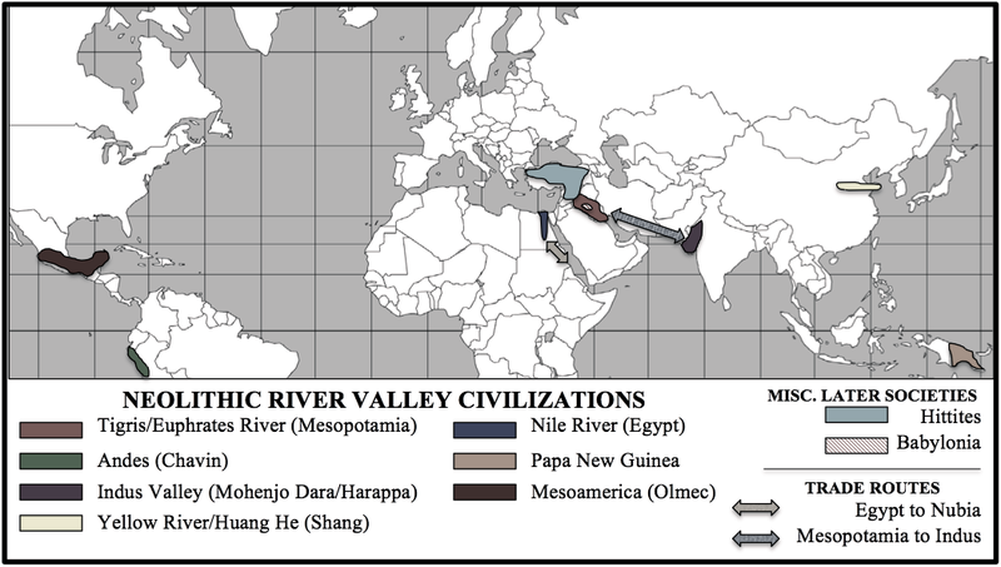WEEK #5 (September 11th - 15th)
Monday: We talked about the Kingdom of Nubia, an often overlooked but important ancient civilization that acted as a gateway between the early river civilizations and those in sub-saharan Africa POWERPOINT
Tuesday: We turned in our Project Homework from last week, and discussed the Olmec and Chavin cultures of Mesoamerica POWERPOINT
Wednesday. We discussed the Greek wars with Persopolis, the Persian empire beginning with the fall of troy and culminating with Alexander the Great POWERPOINT
Thursday: We continued to discussed the Trojan War POWERPOINT
Friday: We discussed Aeneid, Romulus and Remus and the founding of Rome POWERPOINT
Week #5 Homework:
We will need a dish that dates back to prehistory, or was common in the cultures we have covered so far (China, India/Pakistan, Fertile Crescent, Hebrew, Egypt, Greece(Olives), Olmec(three sisters), or Chavin(Quinoa) History requires a lot of studying, reading and writing, but history is also the things we do, stuff we make and things we eat.
Did you know that Ketchup was first sold as medicine in the 1830s? That many common foods like cabbage, broccoli, cauliflower, kale, Brussels sprouts, collard greens, savoy, kohlrabi, and gai lan are all the same plant Brassica oleracea.? Have fun with the assignment, we will be eating our homework on Tuesday, September 19th at the start of class. Please come prepared to speak about your dish, why you chose it and have a 1-2 paragraph written description of what you brought.
Resources:
Standards Addressed:
Week 5 Vocab
Philip II - father of Alexander the Great, he was the king (Basileus) of the Ancient Greek kingdom of Macedon from 359 B.C.E. until his assassination in 336 B.C.E.
Demosthenes - Athenian statesman, recognized as the greatest of ancient Greek orators, who roused Athens to oppose Philip of Macedon
Orator -a public speaker, especially one who is eloquent or skilled.
Philippic - a fiery, damning speech, or tirade, delivered to condemn a particular political actor
Alexander the Great - a king of the Ancient Greek kingdom of Macedon from 336 to 323 B.C.E. and a member of the Argead dynasty
Gordian Knot -a term commonly used to describe a complex or unsolvable problem, solved by Alexander
Battle of Gaugamela - also called the Battle of Arbela was the decisive battle of Alexander the Great's invasion of the Persian Achaemenid Empire.
Hellenism - ancient Greek culture or ideals
Seleucid Empire - a Hellenistic state located in the former Persian Empire, which existed from 312 BC to 63 BC; it was founded by one of Alexander's most powerful generals.
Ptolemaic Empire - a Hellenistic kingdom based in Egypt. It was ruled by the family of Alexander's general from 305 to 30 B.C.E.
Essential Questions:
Monday: We talked about the Kingdom of Nubia, an often overlooked but important ancient civilization that acted as a gateway between the early river civilizations and those in sub-saharan Africa POWERPOINT
Tuesday: We turned in our Project Homework from last week, and discussed the Olmec and Chavin cultures of Mesoamerica POWERPOINT
Wednesday. We discussed the Greek wars with Persopolis, the Persian empire beginning with the fall of troy and culminating with Alexander the Great POWERPOINT
Thursday: We continued to discussed the Trojan War POWERPOINT
Friday: We discussed Aeneid, Romulus and Remus and the founding of Rome POWERPOINT
Week #5 Homework:
We will need a dish that dates back to prehistory, or was common in the cultures we have covered so far (China, India/Pakistan, Fertile Crescent, Hebrew, Egypt, Greece(Olives), Olmec(three sisters), or Chavin(Quinoa) History requires a lot of studying, reading and writing, but history is also the things we do, stuff we make and things we eat.
Did you know that Ketchup was first sold as medicine in the 1830s? That many common foods like cabbage, broccoli, cauliflower, kale, Brussels sprouts, collard greens, savoy, kohlrabi, and gai lan are all the same plant Brassica oleracea.? Have fun with the assignment, we will be eating our homework on Tuesday, September 19th at the start of class. Please come prepared to speak about your dish, why you chose it and have a 1-2 paragraph written description of what you brought.
Resources:
Standards Addressed:
Week 5 Vocab
Philip II - father of Alexander the Great, he was the king (Basileus) of the Ancient Greek kingdom of Macedon from 359 B.C.E. until his assassination in 336 B.C.E.
Demosthenes - Athenian statesman, recognized as the greatest of ancient Greek orators, who roused Athens to oppose Philip of Macedon
Orator -a public speaker, especially one who is eloquent or skilled.
Philippic - a fiery, damning speech, or tirade, delivered to condemn a particular political actor
Alexander the Great - a king of the Ancient Greek kingdom of Macedon from 336 to 323 B.C.E. and a member of the Argead dynasty
Gordian Knot -a term commonly used to describe a complex or unsolvable problem, solved by Alexander
Battle of Gaugamela - also called the Battle of Arbela was the decisive battle of Alexander the Great's invasion of the Persian Achaemenid Empire.
Hellenism - ancient Greek culture or ideals
Seleucid Empire - a Hellenistic state located in the former Persian Empire, which existed from 312 BC to 63 BC; it was founded by one of Alexander's most powerful generals.
Ptolemaic Empire - a Hellenistic kingdom based in Egypt. It was ruled by the family of Alexander's general from 305 to 30 B.C.E.
Essential Questions:

